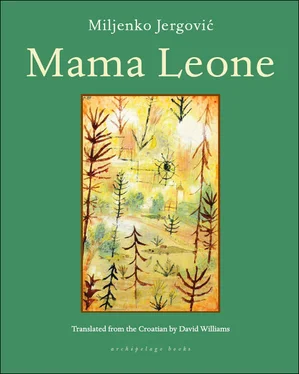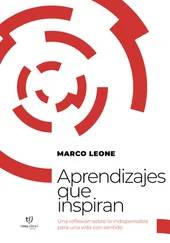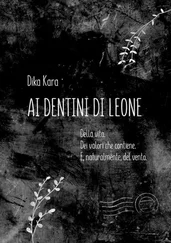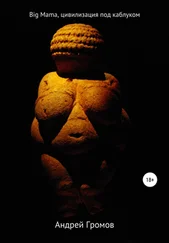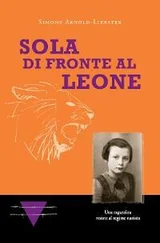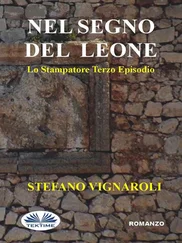That night, my promise to Uncle Momčilo went to the top of my list of priorities in life. I needed to be strong, to be really, really strong, to be so strong that when baby Momir isn’t a baby anymore I’d be able to teach him how to walk in the clouds because his grandpa can’t teach him. And he can’t for two reasons: The first is that he promised me he would never teach him, and the second is that people get older and in old age they lose their strength, so one day they become children who need someone to show them how to walk in the clouds, but no one shows them because it’s impolite to grab old people by the ankles and hang them upside down. There are lots of impolite things that could make the whole world happy. I don’t mean burping, because burping has never made anyone happy, and you only burp because you’re asking for trouble and risking a box on the snout. I was more thinking of all the beautiful things forbidden to old people. My grandpa would definitely be happy if someone picked him up by his ankles and flipped him upside down, so one last time he could see how beautiful the sky is beneath our feet.
I decided that first thing in the morning I’d go over to Auntie Mirjana and Uncle Momčilo’s, take a look at baby Momir, and expertly assess how much time I had before I’d teach him to walk in the clouds.
You’re funny, be funny for us again
It’s hard to believe there are Germans who catch colds. Take Hans for example: He pulls into Drvenik every February, parks his camp trailer, doesn’t bother unpacking but just strips to his swimming trunks, throws his clothes on the backseat and a towel over his shoulder, and dashes off to the beach. Grandma says Hans is as ugly as a bulldog with his stubby legs and shoulders as broad as three non-German men. I like Hans because he’s funny, and he’s funniest when he runs through Drvenik in his trunks on the first day of February, wheezing like a locomotive, tearing down the pier, and plopping into the water — really, he just plops. Hans doesn’t jump in feet- or headfirst; he throws the length and breadth of himself into the water, the same way other people happily flounce onto a soft bed that’s been waiting for them a good long while.
The Drvenik kids all gather on the pier, cheering Hans on as he battles the waves and the wild, unfazed whether it’s blowing a southerly or a northeaster — and there’s always something blowing in February. Hans doesn’t care about the cold either, whether the peaks of the Biokovo range are dusted in snow or crabs have frozen in the shallows. Hans just swims, yelling ah fucking son of a bitch as he goes, and the whole of Drvenik, from Ćmilj to Lučica, knows the crazy Kraut has arrived and opened the goose-bumps and winter swimming season. When Hans swims, everyone who spots him out there in the sea gets goose bumps too.
The first few years people thought Hans was going to drown, it was just a matter of time before his heart stopped or the waves carried him off, but in time they got used to his ways. People figured that the world was full of all sorts but that only Germans were this sort; the miracle was that they had cold blood, as if they were fish and not people. Whenever someone caught a winter cold they’d think of Hans, because Hans never caught cold, because Hans didn’t care about the cold and he’d plop into any February sea.
Every winter Grandma fretted about our bougainvillea. That’s a flower that once lived in the ancient forests of the Amazon and was brought to Europe by a Frenchman. Europe is dry and cold for a bougainvillea, so it always needs protecting from drought or the chill, at least until it shoots up into a big rambling vine with pink-and-violet flowers. Someone should actually take it back to the jungle, but since no one knows where that is or how much a ticket costs, my grandma is in charge of protecting it from cold and drought; in February she wraps it in netting and plastic bags, and in August she gives it plenty to drink.
She’d just finished wrapping it when Hans ran past. You poor wee thing, where on earth has the wind blown you , she said to the bougainvillea. She doesn’t think the flower understands but knows plants don’t really die because a seed or root always remains, but Grandma wants to save this bougainvillea’s life all the same and carps on about how it’s going to flower beautifully and be such a pretty sight. This is a lie: She’s not thinking about beauty or pretty sights, she’s just afraid that one morning she’ll find a dead frozen plant in front of the house, and that this will give her the feeling you feel for everything that’s dead but was once alive. She’d like our bougainvillea to be like Hans, and she’d like Hans to be like our bougainvillea. A flower shouldn’t have to suffer cold and drought, and a German wouldn’t make a fool of himself if he were a little more sensitive to the cold and didn’t go swimming in the wild winter sea.
Franjo, the Kraut’s back , she said coming inside. Grandpa puts the paper down and asks if there’s any beer without waiting for the answer because he already knows there isn’t any because there’s never any if Hans isn’t here, so he takes his wallet and heads for the store. Hans and Staka will be over before the hour’s up. That’s how long Hans needs to plunk in and dry off and Staka to sort out the camp trailer. Grandma calls them Krauts even though Staka is from Smederevo and isn’t a Kraut at all, but Grandma’s in the habit of giving joint names to everyone who comes to visit: our relatives from Zenica are Zeničanians, Auntie Mirjana and Uncle Momčilo are the Nikoličs, Uncle Ismet and Auntie Minka the Brkićs, Uncle Postnikov and Auntie Borka the Postnikovs, and Rajka and Božica the rubes , so it never takes much to know who’s over. Hans and Staka’s family name is Kirchmayer, so it’s easier to call them the Krauts than the Kirchmayers.
Hans comes in hollering Hey Franjo, what’s up, what’s down , and gives Grandpa a hug, backslapping him so hard I always notice how full of dust Grandpa’s back was before Hans beat it out of him. Madame Olga, you just get more beautiful, like Greta Garbo in Ninotchka, Hans bows and kisses Grandma’s hand. Only Hans and actors in black-and-white films kiss women’s hands, I mean, maybe there are other people who kiss them too, but not in my life. Then he comes up to me: you’ve still got blond hair, if you’re blond the next time I see you I’ll teach you German so you can hit on a Berlin girl . He takes me in his arms, throws me in the air, and catches me. Every time I’m scared I’ll get stuck up on the ceiling and stay there like the saints in Sarajevo Cathedral.
Staka stands to the side smiling, just waiting with a bag full of presents. She always gives me a bar of Braco chocolate because she thinks I’m the little boy on the cover, and I always tell her that I’m not, but it never helps. That’s Staka for you: She believes what she believes and that’s the end of it. Grandma says she couldn’t be with Hans if she were any different, but I don’t get what that is supposed to mean. Why couldn’t she be with Hans otherwise? I don’t know, probably she couldn’t be his wife or couldn’t travel to Drvenik with him unless she was sure that I was really the boy on the chocolate packet.
The only time Hans stops shouting is when he talks to Grandma and Grandpa in German. Then he’s quiet like everyone else. He says he didn’t learn to speak our language but to shout it, and that if he had to speak it, he wouldn’t know a single word. Nobody believes him when he shouts that, but everyone laughs. Staka laughs along too, and I think that it’s real love when you can laugh along with someone even though you see them every day and you’ve lived with them your whole life or maybe a bit less.
Читать дальше
